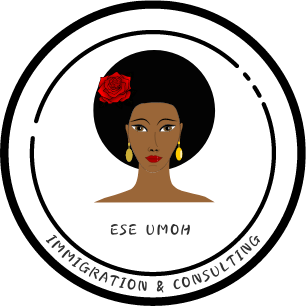Dear future neighbour,
On January 30, 2025, Canada unveiled two new permanent residency pathways aimed at bolstering rural communities: the Rural Community Immigration Pilot (RCIP) and the Francophone Community Immigration Pilot (FCIP). These initiatives are designed to address labor shortages and promote economic growth in smaller and Francophone minority communities across the country.
According to the Minister of Rural Economic Development and Minister responsible for the Atlantic Canada Opportunities Agency, Honorable Gudie Hutchings,
When our rural and remote communities succeed, Canada succeeds—it’s as simple as that. Through the Rural Community Immigration Pilot and the Francophone Community Immigration Pilot, your federal government is helping to fill jobs and drive growth in our magical, small communities, making life better for everyone who lives there.
Rural Community Immigration Pilot (RCIP)
The Rural Community Immigration Pilot seeks to provide rural communities with the tools to attract and retain skilled foreign workers. This community-driven approach allows local businesses to fill critical labor gaps by offering pathways to permanent residency for newcomers committed to living and working in these areas.
See below list of 14 participating communities in the Rural Community Immigration Pilot (RCIP):
- Pictou County, NS
- North Bay, ON
- Sudbury, ON
- Timmins, ON
- Sault Ste. Marie, ON
- Thunder Bay, ON
- Steinbach, MB
- Altona/Rhineland, MB
- Brandon, MB
- Moose Jaw, SK
- Claresholm, AB
- West Kootenay, BC
- North Okanagan Shuswap, BC
- Peace Liard, BC
To be eligible for the Rural Community Immigration Pilot (RCIP), Candidates must:
•Secure a valid job offer from an approved employer in the designated community.
•Have a minimum of one year (1,560 hours) of relevant work experience within the past three years.
What qualifies as relevant work experience?
Your experience must:
•Align with the National Occupational Classification (NOC) Training, Education, Experience, and Responsibilities (TEER) level of your job offer.
•Include the key tasks outlined in your specific NOC description.
•Cover the majority of the essential duties associated with your occupation.
Work experience requirements based on TEER level of job offer:
•TEER 0 or 1: Work experience must be from TEER 0, 1, 2, or 3.
•TEER 2: Work experience must come from TEER 1, 2, 3, or 4.
•TEER 3 or 4: Work experience should be in TEER 2, 3, or 4.
•TEER 5: Work experience must match the exact five-digit NOC code of the job offer.
Special Considerations for Healthcare Workers
If your work experience falls under NOC 31301 (Registered Nurses and Registered Psychiatric Nurses – TEER 1), you may receive a job offer in one of the following roles:
•NOC 33102 (TEER 3): Nurse aides, orderlies, and patient service associates.
•NOC 44101 (TEER 4): Home support workers, caregivers, and related occupations.
Work Experience Exemption for International Graduates
You do not need to meet the work experience requirement if you are an international student who graduated from a public post-secondary institution in the designated community and meet the following conditions:
•For a diploma, certificate, or undergraduate program:
•Completed an eligible two-year (or longer) program.
•Studied full-time throughout the entire duration.
•Earned the credential no more than 18 months before applying for permanent residency.
•Lived in the community for at least 16 out of the last 24 months while studying.
•For a master’s degree or higher:
•Completed the degree in two years or less.
•Studied full-time for the entire program.
•Obtained the degree no more than 18 months before applying for permanent residency.
•Resided in the community for the duration of the studies.
This exemption does not apply if:
•More than half of the coursework focused on English or French language learning.
•Over 50% of the program was completed through distance learning.
•You received a scholarship or fellowship requiring you to return to your home country upon completion.
Minimum Language Requirements
The required Canadian Language Benchmark (CLB) score varies depending on the NOC TEER category of the job offer:
•TEER 0 or 1: CLB 6
•TEER 2 or 3: CLB 5
•TEER 4 or 5: CLB 4
Educational Requirements
You must have either:
•A Canadian secondary school (high school) diploma or post-secondary credential from a recognized institution.
•A foreign educational credential accompanied by an Educational Credential Assessment (ECA) from an approved organization, which must:
•Be issued within the last five years at the time of application.
•Confirm that your foreign education is equivalent to a Canadian high school diploma or a recognized post-secondary credential.
– Demonstrate that you have sufficient funds to support both your own transition and your family’s settlement into the community, as outlined below:
| Number of family members | Funds you need (in Canadian dollars) |
|---|---|
| 1 | $7,963 |
| 2 | $9,692 |
| 3 | $12,069 |
| 4 | $15,056 |
| 5 | $17,145 |
| 6 | $19,015 |
| 7 | $20,884 |
| If more than 7 people, for each additional family member, add | $1,869 |
The Francophone Community Immigration Pilot (FCIP)
The Francophone Community Immigration Pilot is tailored to increase the number of French-speaking immigrants settling in Francophone minority communities outside of Quebec. By focusing on the economic development and demographic revitalization of these communities, the pilot aims to strengthen Canada’s linguistic diversity and support the vitality of Francophone cultures nationwide.
See below list of 6 participating communities in the Francophone Community Immigration Pilot (FCIP):
- Acadian Peninsula, NB
- Sudbury, ON
- Timmins, ON
- Superior East Region, ON
- St. Pierre Jolys, MB
- Kelowna, BC
According to Minister of Immigration, Refugees and Citizenship, Honourable Marc Miller:
Rural and Francophone communities are vital to Canada’s growth and cultural diversity, and we value the unique contributions that newcomers make in these places. By welcoming skilled immigrants to these areas, we are addressing labour shortages and economic needs while promoting the benefits of living in a smaller town or city. Our commitment to supporting these regions reflects our belief that each one matters. That is why we will make the RNIP a permanent program, and why we are introducing these two new pilots. We’ll continue to work closely with these communities as we work to connect businesses with the skilled workers they need to thrive.
Rural regions and Francophone communities outside Quebec have always been at the core of Canada’s cultural and economic vitality. Yet, they often face challenges like population decline and labor shortages, with most immigrants choosing larger cities such as Toronto, Vancouver, and Montreal. With 8,580 individuals gaining permanent residency through the RNIP by the end of 2024, the RCIP and FCIP initiatives bring new hope, supporting the growth and cultural diversity of these communities while promoting more balanced development across Canada.
Do you require assistance with your express entry or provincial nomination profile, study permit or work permit application? Are you overwhelmed with the process and need to speak to a professional immigration consultant? Schedule a consultation session or send an email on info@eseumohimmigration.com to get started today.


